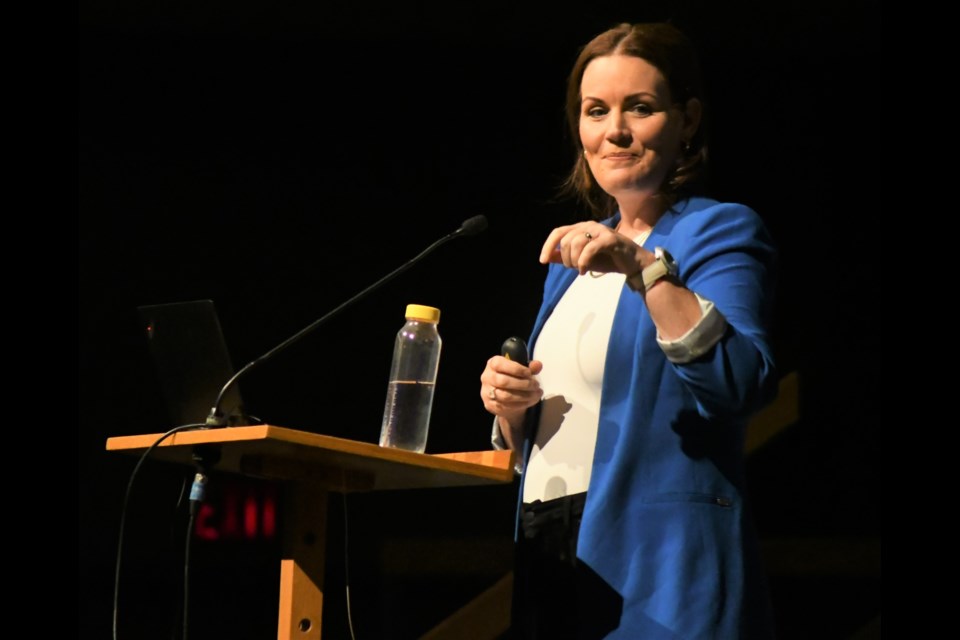Education can be a noble but stressful field, which is why an award-winning professor has offered public school employees practical strategies to foster resiliency at work and home.
Dr. Robyne Hanley-Dafoe spoke to Prairie South School Division about integrating life and work during the division’s opening day conference at the Hildebrand Chapel at Briercrest College and Seminary in Caronport on Aug. 29.
This was her third time speaking to Prairie South, but the first in person.
There is plenty of theory behind resiliency and how to be resilient, Hanley-Dafoe said, but her goal was to share what she had studied and researched so teachers and non-teachers could embrace the concepts in a practical way.
“Your shared experience is data to learn from,” she pointed out.
A concept called “dual truth” states that it’s possible for people to feel two conflicting emotions concurrently. Hanley-Dafoe used the example of teachers feeling both nervous and excited for the school year and said it is OK to experience these emotions, especially after several years of the pandemic.
Many educators have barely held themselves together during the past few years, she continued. While the work is hard, it’s also about the heart and how much educators throw themselves into teaching kids.
The job is not always easy, nor are the answers always apparent. However, working with others usually makes a difference.
“Whenever there is a problem, community is the solution,” added Hanley-Dafoe.
Psychological safety
Hanley-Dafoe’s five principles of psychological safety include:
- Freedom to be seen, heard and respected
- Having experiences honoured
- Being safe from harm, reprisal or rejection
- Knowing that people can meet their own needs and those of their loved ones
- Trusting that all will be well and that people can do hard things
The professor’s five tools for psychological safety include:
- Being accountable and following through
- Being transparent and providing clarity
- Fostering community
- Developing a feedback culture
- Having the courage to intervene
It’s important to find people in our community who are considered invisible but invaluable because of their work and tell them how important they are since they are not often recognized, said Hanley-Dafoe. These people — bus drivers and caretakers, for example — can also help create resilient people.
“All of us have the capacity to influence others in a positive way,” she remarked.
With feedback culture, it’s important to connect with the person before you correct them — or “connect before you correct” — since this makes it easier for people to receive criticism about their work, said Hanley-Dafoe. So, when students walk into the classroom, they should see their teacher’s face light up since that can better develop relationships.
Setting expectations
A tool that educators can use in the classroom is to ask students if they want the teacher to listen, advise or intervene, because teachers usually spend plenty of energy coming up with ideas even though not everyone wants a solution, said Hanley-Dafoe.
“This tool is a game-changer. Ask people they want they — whether to listen, advise or intervene — and 90 per cent of the time, most people want you to listen,” she added. “It’s giving people the key to know what they need.
“It’s a small tool, but effective.”
Wise practices
Five “wise practices” that can help people recover from emotional or nervous stress include solitude and collecting one’s thoughts, authentically connecting with others, spending time in nature, listening to music to change one’s mood, and being grateful and showing gratitude.
While “hope and prayer” is a strategy, Hanley-Dafoe added, it’s important to implement these other tools and have a plan to integrate work and life, which can enable people to “do hard things,” overcome challenges and become resilient.
Visit https://robynehd.ca for more information.




